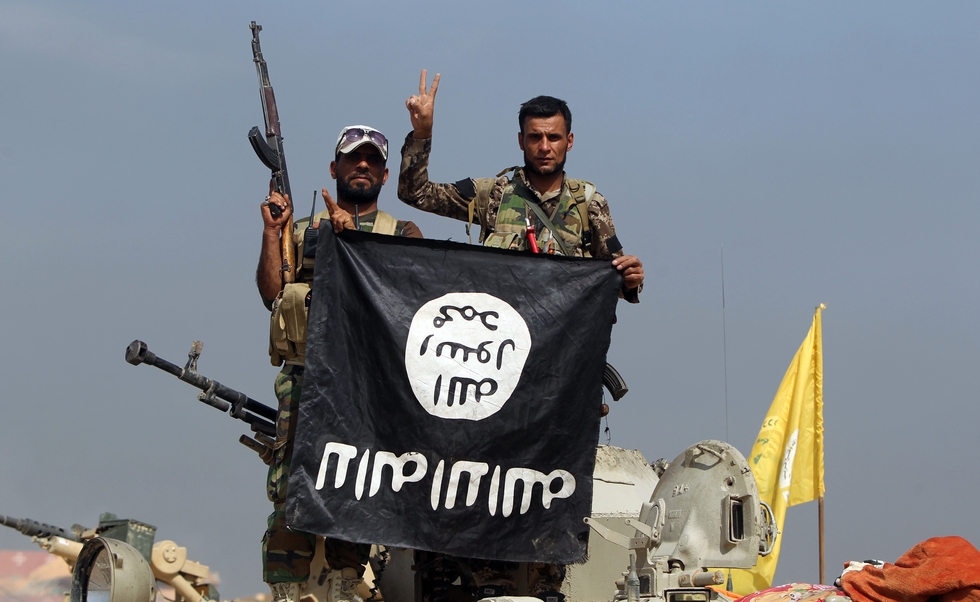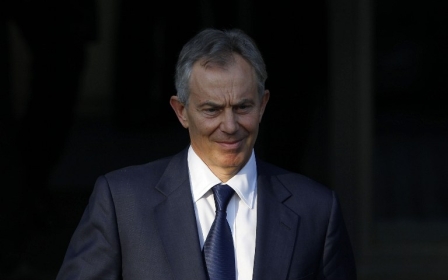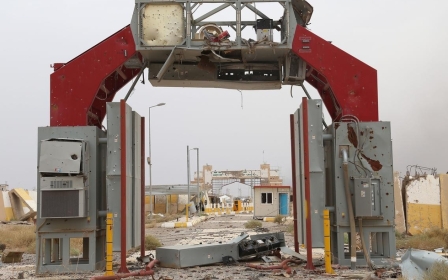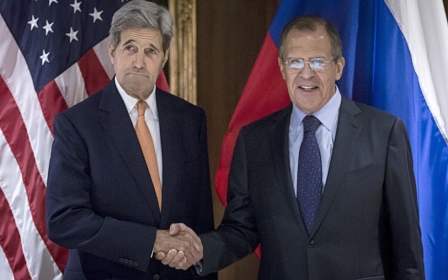Pentagon chief sees ground role for US troops in IS fight

US troops will take part in direct ground action against the Islamic State (IS) group in Iraq and Syria if necessary, Ashton Carter, the US defence secretary, has said.
The announcement on Tuesday appeared to signal a shift in White House policy against using ground troops in a combat role, although a US soldier was last week killed while participating in a raid led by Kurdish forces to rescue prisoners being held by IS in Iraq.
“We won’t hold back from supporting capable partners in opportunistic attacks against [IS], or conducting such missions directly, whether by strikes from the air or direct action on the ground,” Ashton Carter told a Senate Armed Service Committee.
Carter’s comments came amid discussions within the Obama administration about adjustments to its anti-IS strategy after a train-and-equip programme for Syrian opposition groups was recently placed on hold after high-profile setbacks.
But Republican members of the Senate committee remained critical on Tuesday with Lindsey Graham, a presidential candidate, calling the strategy "half-assed".
Carter described the change in strategy as “three Rs” – “Raqqa, Ramadi and Raids”.
He said the coalition should put more pressure on the Raqqa stronghold, the northeastern Syrian town which IS has declared its capital.
“To that end we will support moderate Syrian forces fighting [IS] that have made territorial gains near Raqqa – indeed, some of them are within 30 miles [48 kilometres] of Raqqa today,” he said, noting that Syrian Arab Coalition forces, who were recently provided with 50 tonnes of ammunition from the US, would primarily help in that effort.
He also said the US would support Jordan and intensify airstrikes on IS targets in Syria.
In Ramadi, Carter said the US would give more help to Iraqi forces that have intensified attacks against IS.
“As we see more progress toward assembling capable and motivated Iraqi forces under Baghdad’s control and including Sunni elements, we are willing to continue providing more enabling capabilities and fire support to help our Iraqi partners succeed,” he said.
Carter also noted that Iraq should do more “in the direction of multi-sectarian governance and defence leadership” as the US continues to train and equip Sunni tribes to join the fight against IS.
“If local Sunni forces aren’t sufficiently equipped, regularly paid, and empowered as co-equal members of the Iraqi Security Forces, [IS’s] defeats in Anbar will only be temporary,” he warned.
Summarising the final “R” in the three-pronged strategy, Carter said US forces would take ground action in raids against IS fighters when necessary.
He singled out last week’s raid by US special forces soldiers and Kurdish fighters in Hawijah, Iraq, in which the US Defence Department said 70 hostages facing execution were rescued from an IS prison.
A US soldier subsequently died of injuries sustained in the raid and four Kurdish fighters were also wounded.
“While our mission in Iraq is to train, advise and assist our Iraqi partners, in situations such as that operation – where we have actionable intelligence and a capable partner force – we want to support our partners,” he said.
But Carter and Joint Chiefs of Staff Chairman Joseph Dunford faced sustained critical questioning from Graham and committee chairman John McCain, also a Republican, during Tuesday's session.
"We are not doing a damn thing to help the people who want to change Syria for the better by getting rid of the dictator in Damascus," said Graham.
"This is a sad day for America and the region will pay hell for this. The people in Syria are not going to accept this. This is a half-assed strategy at best."
McCain raised concerns about how the US planned to protect US-backed opposition rebels in Syria from airstrikes being carried out by Russia in support of Syrian President Bashar al-Assad.
"Are we going to protect them from being barrel bombed by Bashar Assad and protected from Russia?" McCain asked. "These are American-supported and coalition-supported men who are going in and being slaughtered."
New MEE newsletter: Jerusalem Dispatch
Sign up to get the latest insights and analysis on Israel-Palestine, alongside Turkey Unpacked and other MEE newsletters
Middle East Eye delivers independent and unrivalled coverage and analysis of the Middle East, North Africa and beyond. To learn more about republishing this content and the associated fees, please fill out this form. More about MEE can be found here.




